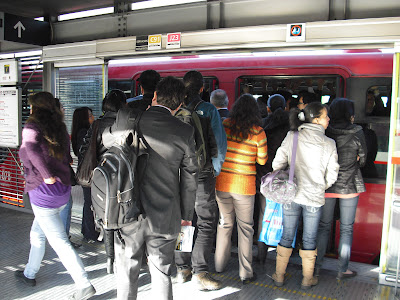There is that old adage that ‘the best
things in life are free’. In a number of ways, this still holds true, depending, of course, on your preferences.
For example, you can have a refreshing, relaxing
walk in the open countryside, engage in a trek up a mountain or spend some
quality time with family and friends. In most scenarios these things should
cost you little or nothing yet empower your body and mind.
Some people,
naively, like to throw sexual intercourse into this category. OK, in its basic
natural form, in the actual moment, love-making is free (for another take on
‘free’ love see: http://bit.ly/MtWh7T). That is, if you’re doing it
unprotected. But there are many obvious inherent risks in such practices — all
of which have the potential to come with a hefty price down the line.
 |
| It's called 'Plan B', below, for a reason. Go with 'Plan A', above, first. |
For several men, in a time when, it can be
argued, the contraceptive options for our female counterparts are more
plentiful, it is more desirable to opt for unprotected sex. It’s more natural.
Fumbling around with a condom is, pun intended, a bit of a stretch.
There’s the
belief that women’s contraception is less interfering in the love-making
process yet far more effective. That, indeed, may be true from a birth-control
point of view. However, if you are the sleeping-around type, you can never be
too well protected when it comes to sexually transmitted infections (STIs).
Outside of that, though, leaving all the
responsibility to avoid an unwanted pregnancy on one side is not alone taking a
big chance, but it’s also very foolish and selfish. If you do the crime — or play
a significant part in it — then you should be prepared to do the time. Or at
least contribute towards ‘fixing’ things.
Plus, you can never be fully certain
as to what your partner’s desires are, regardless as to whether it is a casual
or more long-term relationship. Playing things ultra-safe is always the best
option in this regard.
Because with casual, unprotected sex can
come unplanned, unwanted, pregnancies.
If this happens to become your fate i.e.
due to a lack of responsibility you’re facing becoming a father before you’re
really ready, the options are stark for you and your ‘accomplice’. Let nature
take its course or abort. Neither can be taken lightly — indeed, as you know,
the latter choice is not easily or readily available to all.
From a man’s perspective, especially one
not wishing to become a father, abortion is often seen as the least-bad option. From the woman’s side, we can only imagine it leaves both
physical and psychological scares.
We haven’t, though, mentioned the third party
in all of this. For those in the pro-life camp the most fundamental aspect: the
developing embryo. From a biological perspective, it can be hard to argue
against the belief that once the sex cells have successfully fused, the initial
sparks of life emerge.
So, as a result of two people’s lazy,
irresponsible actions a new life can be created when it could have been, in
most cases, prevented.
Yes, in such circumstances, it may be better for all
involved, including the unborn, to terminate the pregnancy before it gets a
chance to fully develop.
A child should, after all and where possible, be born
into a loving relationship with both father and mother accepting
responsibility. Problems tend to emerge where this is lacking — although, we
must state, not always.
What all this essentially boils down to is the advice
from one of the oldest sayings in the book. Prevention is better than cure.
If that proves too difficult a task, then the following may come into play: 'If you’re sowing your wild oats at night, pray for crop failure in the morning.'
If that proves too difficult a task, then the following may come into play: 'If you’re sowing your wild oats at night, pray for crop failure in the morning.'











